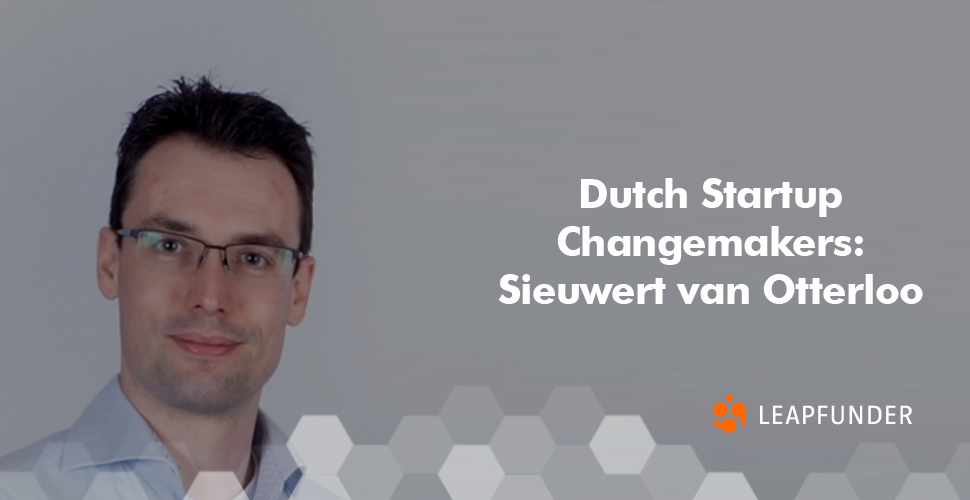Sieuwert van Otterloo is the Founder and Managing Director of the ICT Institute, a consulting firm for IT Due Diligence, Software, Privacy, and AI advice. They provide independent advice combining the latest research results with practical experience. To keep learning, he also invests in and provides guidance to technology startups, teaches software project management at the university and publishes original research and other articles.
He invested in ProctorExam because he was impressed by the team and interested in the market. This Dutch company that provides hundreds of universities and professional licensing companies with software for online proctoring, has been taken over by a British division of the American company Turnitin as of December 31, 2020. Find out when Sieuwert invested in ProctorExam, what was his multiple and if it was important for him to work with other investors in a syndicate.
1. Hi Sieuwert, thank you for agreeing to the interview. Could you tell us a bit about your background and how you started investing in startups?
I started investing 11 years ago when I worked as a Management Consultant at McKinsey. I was a coach in the NewVenture startup competition and noticed that I didn’t know enough about the actual problems that startup entrepreneurs faced. Other coaches used their experience in large companies to help, ignoring the fundamental differences between large companies and disruptive startups.
I needed more insight into how startups operate and decided to gain an insider perspective. I also learned that in those days (this was before the growth of a Dutch ecosystem and before Leapfunder), startups struggled to find the first investor since professional funds preferred later rounds. I could solve both problems by putting my savings into Otterloo Ventures, an extremely-early investment fund.
2. What led you to invest in ProctorExam originally?
I was impressed by the team and interested in the market as well. I occasionally teach at the university, so I was aware of the lack of a higher education digital strategy. I was hoping that Procwise (like lady Gaga, ProctorExam had to change names before becoming successful) could change universities’ mindset.
3. What was your multiple? When did you invest, and when did you exit?
It’s important to give a fair presentation about the risks and rewards of investing in startups. My multiple on this deal was nice (I received about five-six times the money I invested). Before this deal, I have had 0.3, 0, 0, 0.5 multiples. I would not invest in startups for the expected returns; I do it to have an impact and perhaps break even.
4. Did you earn back your whole portfolio? How much work did you have to do on your investments?
In theory, yes. In practice, I will have to wait and see. The main problem with being an early investor is that it takes longer than you expect before you get any returns. When I started investing, I expected each investment to yield returns in two-three years. In many cases, it takes four-eight years. I have invested in a few startups that tell me they are doing well. In theory, this makes me ‘rich’. These successes do not generate any cash flow. You have to be patient as an investor: it takes more than two years to build a scalable company.
5. Was it important to work with other investors in a syndicate?
Yes. Since I invest with my own savings as a professional, I can only invest small amounts (single thousands) in an individual startup. I need to pool up with other investors to make a meaningful investment round. For me, it’s also reassuring that the startup has a large network of committed professionals around it.
6. Would this have been possible without Leapfunder?
It wouldn’t have been easy. Before Leapfunder, it was challenging for startups to structure a deal that was fair to all friends, family and early investors like me. Everyone had a different view of valuations, and many people in the Netherlands were wary of anything that was direct share ownership. With Leapfunder, there is a standard term sheet with a proven legal structure that solves all of these problems: it solves the legal issues and postpones the valuation moment so that people can focus on the most important part of any investment decision: the team you are investing in.
7. Will you continue investing in startups?
Definitely. I believe that it’s good for society and individual growth to start a company based on your ideas and motivation. So if the idea and the team are good, we as an ecosystem should provide the funds necessary for entrepreneurs to start. I hope that my small investments will have a big impact.
Thank you very much for sharing this story with us, Sieuwert. We wish you the best of luck in your future endeavours.
Join our network of startups & investors!
